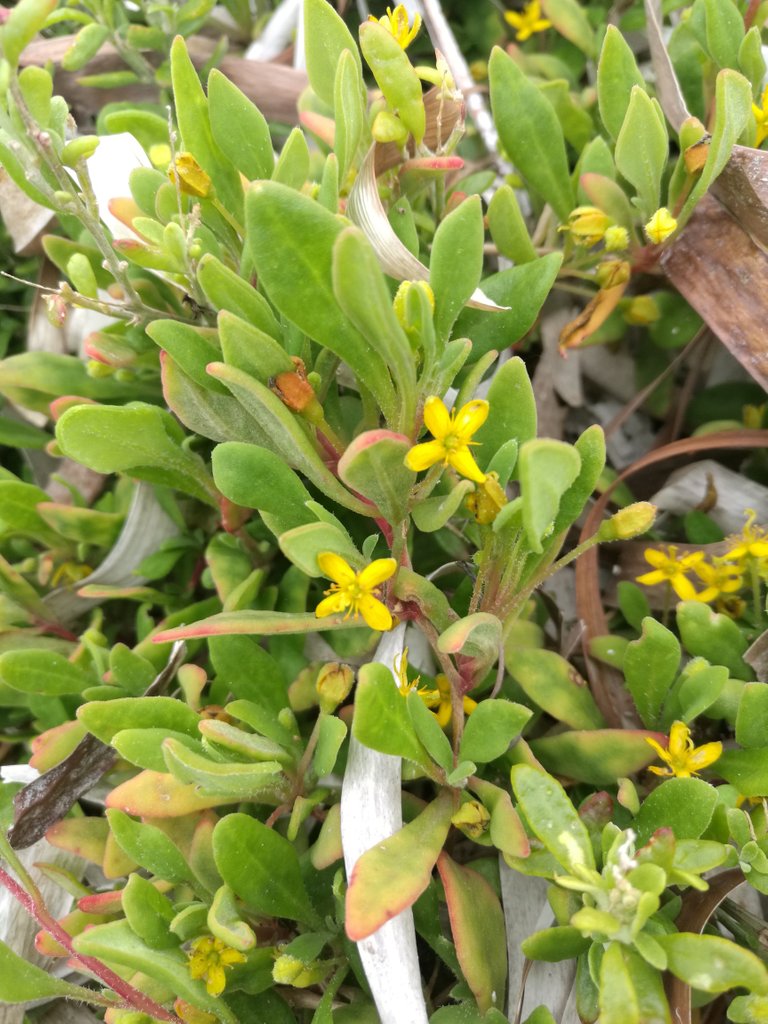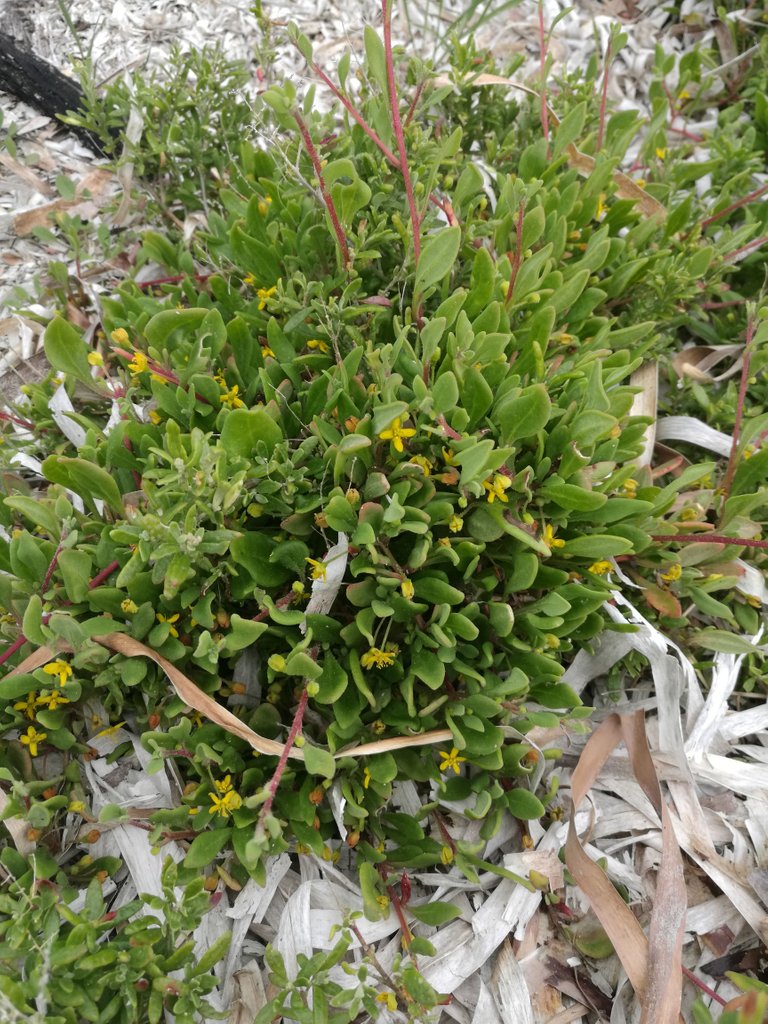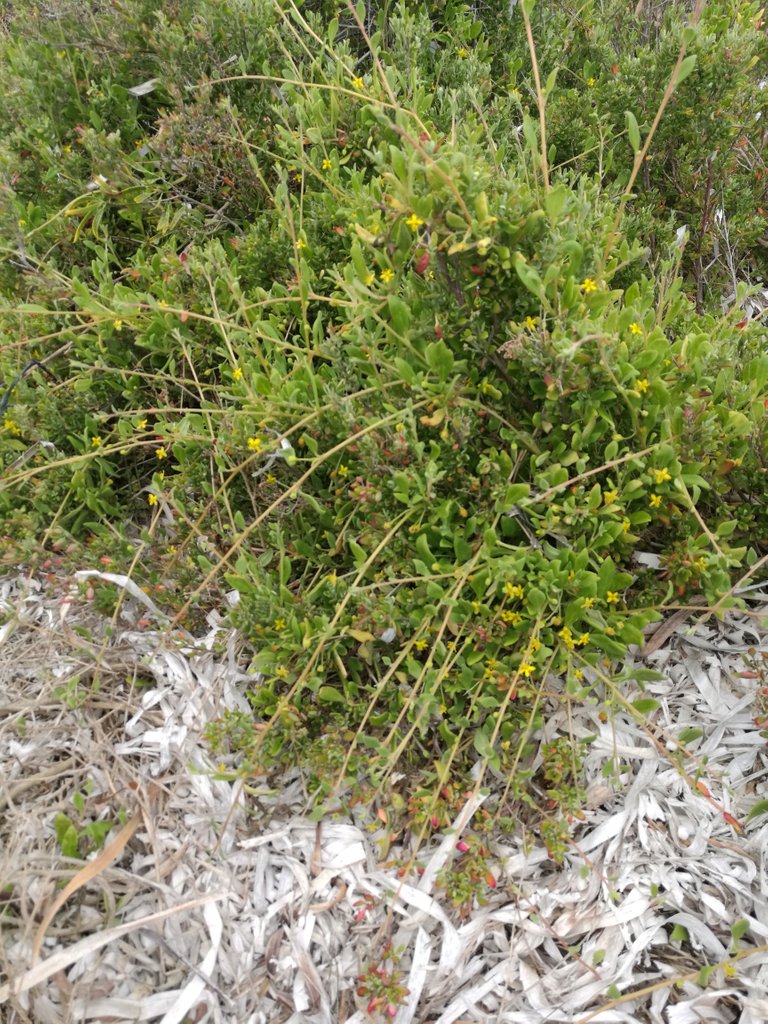
Bower Spinach (Tetragonia implexicoma) and Sea Spinach (Tetragonia decumbens) are local relatives of the well known Warrigal Greens or New Zealand Spinach (Tetragonia tetragonoides) that restaurants love. They are all related to the Ice Plants and Pigface that I've covered before, being in the family Aizoaceae.

The greatest joy of both species as a bushfood is that they're with us all year round, so we may forage them at any time.
Both species are easy to identify, sprawling succulents (see below). Bower Spinach likes cooler, moister soils under trees near beaches and in the mallee. Sea Spinach prefers more open places such as on dunes. They are vigorous, sprawling, scrambling herbs that can cover rocks and shrubs.
Both species usually establish themselves near or under trees and shrubs from which birds drop or poo out undigested seeds that are then provided with fertilizer and a little moisture by the poo itself.
Growing under trees and bushes, Bower Spinach forms the bowers from which it gets its common name. Sea Spinach tends to form tighter clumps as it is exposed to the elements to a greater degree than Bower Spinach.

Both have reddish stems when young that get darker and browner with age. Bower Spinach stems become woody as they get older. The leaves are green, thick and succulent and covered with little bubbles of salty water.
The flowers are yellow and have 4 petals, though there are very similar plants with 5 on our local dunes that can be used as bushfood too. The best way to differentiate implexicoma from decumbens is by the flowers -with decumbens, the flowers are single while with decumbens, they are in groups of 3 to 5.
Use the fresh leaves and stems as a salty, crunchy addition to salads or steam or boil them as you would any leafy greens. If you boil them, a change of water may be necessary due to their high salt content. The seeds may be eaten too but are better before they go hard.
Enjoy!

This is @originalwork. The pics were taken by yours truly.
You can find more great Bushfoods and Bush Medicines on our Aussie Bushfoods Index here on Steemit.
Learn more about South Australian Bushfoods and Bush Medicines on our blog, Ligaya.
We also have a YouTube channel and a Patreon page that you might like to visit.
We're also members of the Homesteadersonline community. Click the image for the invite link to join us


Thank you for sharing! The bush always looks like it doesn't have much to offer in terms of food and it is nice to know there are plants we can eat and they can be tasty as well!
No worries! Yes, the bush can look a little sparse, but there is usually something edible around. I've done a post that indexes the ither bushfoods I've covered so far -
https://steemit.com/food/@ligayagardener/aussie-bushfoods-index-december-update
I'm going to check it out, I should probably try and print that out as a pocket guide to carry around! Might come in handy!
Ill be making an ebook soon about bushfoods. There are more on my other blog https://www.ligaya.online that I'm transferring to steemit.